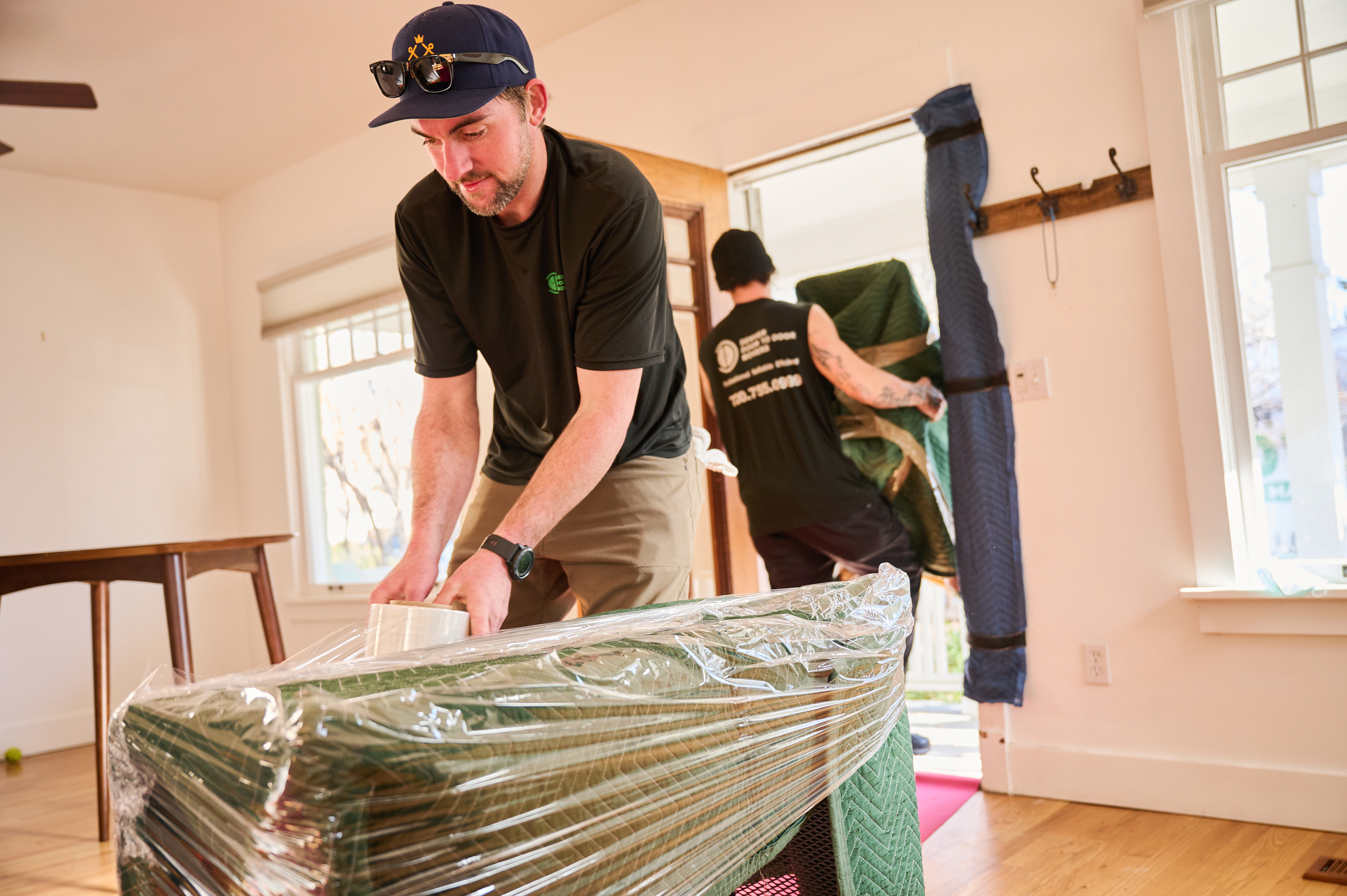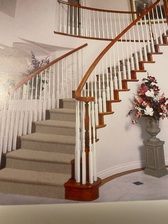
Get matched with top gas log pros in Pendleton, OR
Enter your zip and get matched with up to 5 pros
Need a pro for your gas log service project in Pendleton, OR?
Verified Reviews for Gas Log Service pros in Pendleton, OR
*The Angi rating for Gas Log Service companies in Pendleton, OR is a rating based on verified reviews from our community of homeowners who have used these pros to meet their Gas Log Service needs.
*The HomeAdvisor rating for Gas Log Service companies in Pendleton, OR is a rating based on verified reviews from our community of homeowners who have used these pros to meet their Gas Log Service needs.
Last update on January 07, 2026
Find Gas log pros in Pendleton

AppliancePartsPros.com
AppliancePartsPros.com
Since 1999, we've helped millions of do-it-yourselfers save money and fix their broken appliances quickly by providing quality appliance parts and free repair advice. We are only an online appliance parts retailer that offers a 365 day warranty and fast shipping. We also offer technical advice and diagnosis totally free 6 days a week. If you are interested in repairing your own appliance, please call us at 1-877-477-7278 or click live chat on our web site. We will help diagnose the problem and provide you with all the necessary information for the repair free of charge. It's better with the Pros!™ Avoid costly service calls - visit us at http://www.appliancepartspros.com
"Beware of shipping issues with this company. Ordered an ice maker installation kit on 10/10/25. Shipping was due no later than 10/20 according to company and FedEx tracking. FedEx tracking showed the package at their facility for 8 days without moving beginning on 10/15. Called FedEx 3 times. Each time they said they cannot find package and I have to contact shipper. Shipper has to make a claim, they will not mark it as lost. Called Appliance Parts Pros twice. Each time they say FedEx has to mark package lost before they will do anything. They also state they have to wait 14 days from them before doing anything because of their contract with FedEx. I don't care about their contract, I want what was ordered and paid for. Just going in circles with them and FedEX. If they shipped after 14 days it would be 22 days from that point, 32 days from the date of order if they shipped it that day. There was a deadline for installing this part before tenants arrive. They did not care, would not m"
Ron R on October 2025
Since 1999, we've helped millions of do-it-yourselfers save money and fix their broken appliances quickly by providing quality appliance parts and free repair advice. We are only an online appliance parts retailer that offers a 365 day warranty and fast shipping. We also offer technical advice and diagnosis totally free 6 days a week. If you are interested in repairing your own appliance, please call us at 1-877-477-7278 or click live chat on our web site. We will help diagnose the problem and provide you with all the necessary information for the repair free of charge. It's better with the Pros!™ Avoid costly service calls - visit us at http://www.appliancepartspros.com
"Beware of shipping issues with this company. Ordered an ice maker installation kit on 10/10/25. Shipping was due no later than 10/20 according to company and FedEx tracking. FedEx tracking showed the package at their facility for 8 days without moving beginning on 10/15. Called FedEx 3 times. Each time they said they cannot find package and I have to contact shipper. Shipper has to make a claim, they will not mark it as lost. Called Appliance Parts Pros twice. Each time they say FedEx has to mark package lost before they will do anything. They also state they have to wait 14 days from them before doing anything because of their contract with FedEx. I don't care about their contract, I want what was ordered and paid for. Just going in circles with them and FedEX. If they shipped after 14 days it would be 22 days from that point, 32 days from the date of order if they shipped it that day. There was a deadline for installing this part before tenants arrive. They did not care, would not m"
Ron R on October 2025
Airrow Heating & Sheet Metal
Airrow Heating & Sheet Metal
Mechanical contracting firm with advanced training in whole home performance testing.
"It went great! Very knowledgeable all around! Prompt, cleanliness, and professional service! My cat stowed away in their van overnight and Steve brought him home first thing the next morning! They certainly went above and beyond!"
Randy G on April 2022
Mechanical contracting firm with advanced training in whole home performance testing.
"It went great! Very knowledgeable all around! Prompt, cleanliness, and professional service! My cat stowed away in their van overnight and Steve brought him home first thing the next morning! They certainly went above and beyond!"
Randy G on April 2022
Buck's Stove Palace
Buck's Stove Palace
Buck's Stove Palace is small business that has operating in Portland since 1974. The founder and owner Buck has decades of experience in both new and antique stoves.
"It went smoothly. They always kept in touch with email's & phone calls. They called 1/2 hour before scheduled time to say they were on their way. The laid down mats to protect my floors. The cleaned out the insert and vacuumed all around so not to spill any debris into the room. They were worth every penny. They said the stove was about 600 lbs. They carefully explained about the EPA needed proof that the stove was removed & destroyed which I had no idea it was needed."
Marilyn B on May 2018
Buck's Stove Palace is small business that has operating in Portland since 1974. The founder and owner Buck has decades of experience in both new and antique stoves.
"It went smoothly. They always kept in touch with email's & phone calls. They called 1/2 hour before scheduled time to say they were on their way. The laid down mats to protect my floors. The cleaned out the insert and vacuumed all around so not to spill any debris into the room. They were worth every penny. They said the stove was about 600 lbs. They carefully explained about the EPA needed proof that the stove was removed & destroyed which I had no idea it was needed."
Marilyn B on May 2018
Classico Marmo
Classico Marmo
Complete slab stone and Quartz fabrication, and installations. Owner is 5th generation stone worker, and has been doing stone slab fabrication full time since 1982. We do residential, and light commercial jobs. We specialize in Marble, Limestone, and Soapstone (and all of the other stones as well!). Our clients are all from word of mouth referrals (except for Angie's list). We specialize in custom work. I invite you to call us for your work- large jobs or small ones, they are all important. We also do repair work, either in our shop, or on site if needed. Your broken table, or other stone may be salvaged. Just call and I can tell you if it is possible (I have personally repaired "Humpty Dumpty" at least 1000 times, and most of the time you couldn't tell he fell off of the wall!) I could go on, and on, and on, but I think you've read enough. For more info on our services, just call. If you don't get thru, keep trying as my voicemail gets filled up quickly some days, or send me an email. We are a small business, and focus on the little details which take longer. The final product, and customer satisfaction are the most important factors.
Complete slab stone and Quartz fabrication, and installations. Owner is 5th generation stone worker, and has been doing stone slab fabrication full time since 1982. We do residential, and light commercial jobs. We specialize in Marble, Limestone, and Soapstone (and all of the other stones as well!). Our clients are all from word of mouth referrals (except for Angie's list). We specialize in custom work. I invite you to call us for your work- large jobs or small ones, they are all important. We also do repair work, either in our shop, or on site if needed. Your broken table, or other stone may be salvaged. Just call and I can tell you if it is possible (I have personally repaired "Humpty Dumpty" at least 1000 times, and most of the time you couldn't tell he fell off of the wall!) I could go on, and on, and on, but I think you've read enough. For more info on our services, just call. If you don't get thru, keep trying as my voicemail gets filled up quickly some days, or send me an email. We are a small business, and focus on the little details which take longer. The final product, and customer satisfaction are the most important factors.

Specialty Construction LLC
Specialty Construction LLC
Specialty Construction is a family business licensed buy the state of Oregon as a general contractor. We provide a broad range of services, and have been doing so since 1989. My son Jason and I work together with you to identify the work scope, design, estimate the cost of the job within your budget. Our list of satisfied customers will encourage your choice for who you can count on to be help you get the job done with the flavor of goodness all the way through.
Specialty Construction is a family business licensed buy the state of Oregon as a general contractor. We provide a broad range of services, and have been doing so since 1989. My son Jason and I work together with you to identify the work scope, design, estimate the cost of the job within your budget. Our list of satisfied customers will encourage your choice for who you can count on to be help you get the job done with the flavor of goodness all the way through.

Advanced Comfort Heating & Cooling
Advanced Comfort Heating & Cooling
Advanced Comfort Heating & Cooling has been serving Central Oregon customers for over 17 years. We offer fast, economical service and the same rates for days, nights and weekends. Call 541-815-7941 or email [email protected] for all of your heating and air-conditioning needs! Owner Stanley Strong stands behind the work of his company and offers his customers a satisfaction guarantee. CCB 194084 Licensed - Bonded - Insured
Advanced Comfort Heating & Cooling has been serving Central Oregon customers for over 17 years. We offer fast, economical service and the same rates for days, nights and weekends. Call 541-815-7941 or email [email protected] for all of your heating and air-conditioning needs! Owner Stanley Strong stands behind the work of his company and offers his customers a satisfaction guarantee. CCB 194084 Licensed - Bonded - Insured
Steve Laprelle's Construction
Steve Laprelle's Construction
Serving the La Grande, OR area for over a decade, Steve LaPrelle's Construction Inc offers a wide array of construction services. Our highly skilled contractors will beautify your northeast Oregon home or business while making it more energy efficient at the same time to save you money.
Serving the La Grande, OR area for over a decade, Steve LaPrelle's Construction Inc offers a wide array of construction services. Our highly skilled contractors will beautify your northeast Oregon home or business while making it more energy efficient at the same time to save you money.

JBC Group Solutions Inc
JBC Group Solutions Inc
1-888-JBC-ON-TIME (888-522-6684). 26 employees in Portland area. No subs used. Payment may be made via PayPal.
1-888-JBC-ON-TIME (888-522-6684). 26 employees in Portland area. No subs used. Payment may be made via PayPal.
Cascade Sweeps
Cascade Sweeps
We are the only licensed chimney sweeps serving the columbia gorge
We are the only licensed chimney sweeps serving the columbia gorge
Blue Mt Stove Service
Blue Mt Stove Service
Retail Sales of Gas Pellet and Wood Stoves and accessories...Brands include LOPI, AVALON and FIREPLACE XTRORDINAIR
Retail Sales of Gas Pellet and Wood Stoves and accessories...Brands include LOPI, AVALON and FIREPLACE XTRORDINAIR
The homeowners guide to home care is here
From average costs to expert advice, get all the answers you need to get your job done.

The cost to move a 4-bedroom house depends on home size, distance, and whether you hire movers. Learn the necessary costs before moving long distance.

The cost to move a shed depends on size, the distance of your move, and more. Considering if you should hire pros or DIY? This guide can help you decide.
 •
•How much do movers cost? The answer varies based on a lot of factors, but we’ve laid them all out for you here. Plan your budget with our cost guide.

Packing clothes for a move can be stressful, but you can make the experience more pleasant by having a plan. Learn how to pack clothes for moving.

It’s normal to stress about your move. But learning about the types of moving companies can help you feel more confident about the process.

Whether you’re moving out of state for the first time or the fifth, it can be overwhelming. And no matter if you hire a moving company or handle it all yourself, these six tips will make your long-distance move to a new state easy and exciting.
- Plumbing in Pendleton
- Kitchen And Bath Remodeling in Pendleton
- Fencing in Pendleton
- Flooring in Pendleton
- Contractor in Pendleton
- Roofing in Pendleton
- Moving in Pendleton
- Garage Builders in Pendleton
- Siding in Pendleton
- Doors in Pendleton
- Exterior Painting in Pendleton
- Windows in Pendleton
- Mold Testing And Remediation in Pendleton
- Concrete Repair in Pendleton
- Pressure Washing in Pendleton
- Carpet Cleaning in Pendleton
- Window Tinting in Pendleton
- Deck Maintenance in Pendleton
- Solar Panels in Pendleton
- Tree Service in Pendleton
- Lawn And Yard Work in Pendleton
- Foundation Repair in Pendleton
- Painting in Pendleton
- Epoxy Flooring in Pendleton
- Handyman Service in Pendleton
- Pest Control in Pendleton
- Leaf Removal in Pendleton
- Electrical in Pendleton
- Locksmiths in Pendleton
- Structural Engineering in Pendleton
- 🌱 "Mow a small front yard"
- 🛠 "Fix a leaking pipe under the sink"
- 🏠 "Repair shingles on an asphalt roof"




